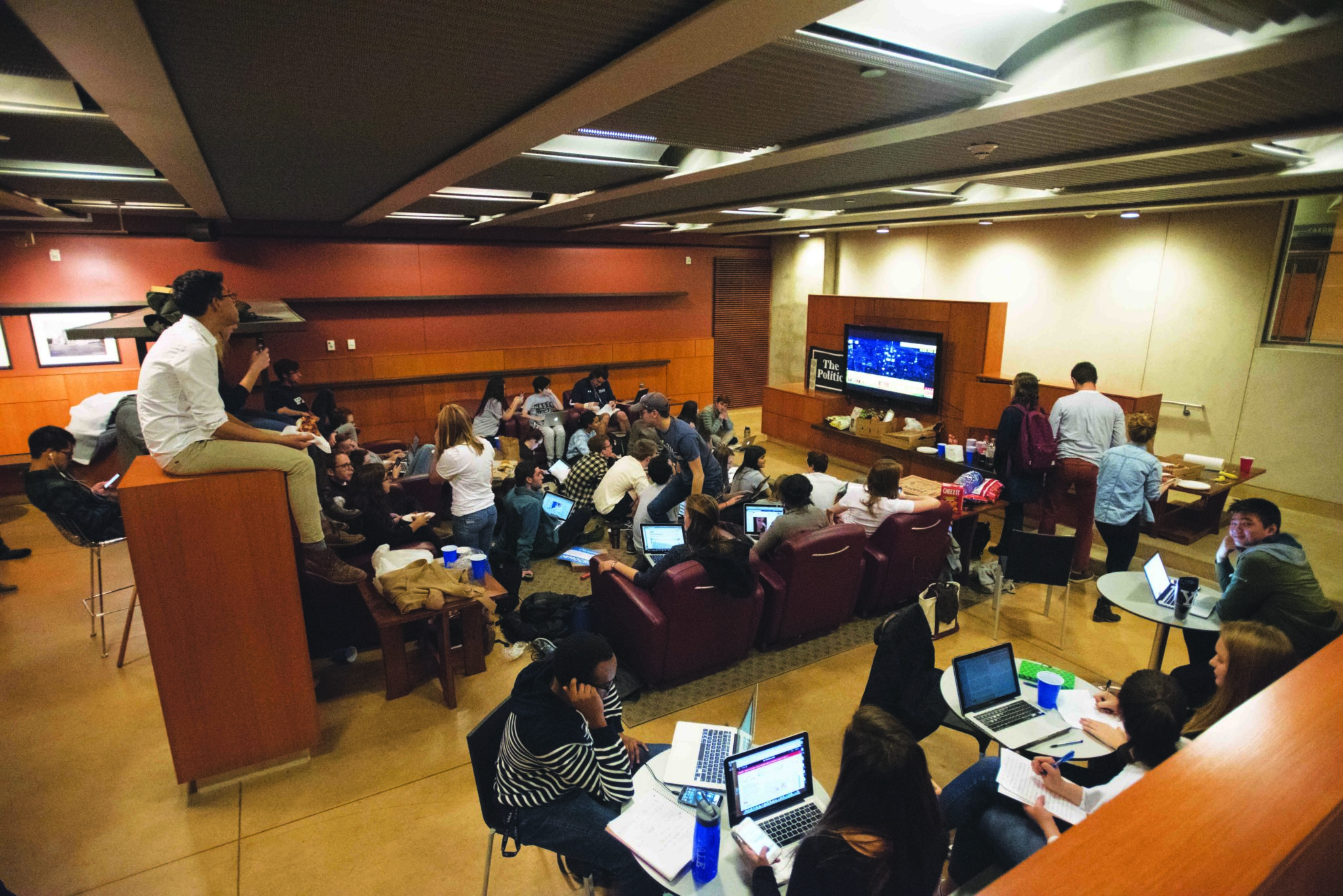
After President Donald Trump’s election, the Yale College Democrats rewrote their mission statement to include the phrases “resisting attacks,” “diverse community” and “across the country.” And over the past year, the Dems have evaluated a variety of advocacy strategies to push back against Republican-dominated legislatures at various levels of government.
Under the Trump administration, the Dems have focused more on engagement with competitive state and local campaigns as well as with the New Haven community and the city’s government. The Dems typically use their weekly meetings to organize work with campaigns in the fall semester and advocate for progressive policy decisions in the spring semester, according to newly elected Dems President Jordan Cozby ’20. Cozby said the Dems’ efforts will likely shift toward a more integrated approach during 2018 in order to continue and expand involvement with contested campaigns.
“If you consider so many of the crazy things this year that this administration has done, Democrats having one house of Congress would completely change the dynamic,” Cozby said.
“So I think what we’re really going to be considering in the next semester is ‘What are the most vital races?’”
Outgoing Dems president Josh Hochman ’18 said the group saw a burst of new progressive advocacy organizations form after Trump was elected, creating more potential partners for the group as it advocates for policies across local, state and national legislatures.
The Dems often work with the Connecticut legislature as part of their advocacy efforts, according to outgoing Dems Communications Director Keera Annamaneni ’20. In past years, this collaboration has taken place during periods when Democrats have held a vast majority of legislative seats in state government. However, Annamaneni said, the once “deeply blue” legislature is now split evenly between Democrats and Republicans, posing a challenge to the Dems’ advocacy efforts.
“State-level progressive action is harder to accomplish without as many local Democratic advocates,” Annamaneni said. “However, the new blue wave that we saw in New Jersey and Virginia give us hope for Connecticut as well.”
This “blue wave” comes in part as a result of Dems’ efforts in local and state elections, Hochman said. This year, the group launched a new fellowship program that matched 45 Dems members with various progressive local and congressional campaigns across Virginia, New Jersey and New York before the Nov. 7 election cycle. Annamaneni said the Dems focused on competitive races within traditionally purple or red districts and contributed to multiple victories for Democrats, including a 15-seat increase in Virginia’s House.
While the Dems typically focus on legislative advocacy in the spring semester, Hochman said outgoing board members are encouraging their successors to continue campaign-related programming in preparation for the 2018 midterm elections.
“Our Fellows Program this year was evidence that we can make a real impact on out-of-state races without even leaving campus — the urgency of the moment demands that we do so, if we have the capacity,” Hochman said.
Cozby said the importance of the 2018 election cycle “can not be stressed enough.” In his view, the dynamic of the current administration would change if Democrats were to secure a majority in even a single national legislative body.
To increase student engagement with the organization, Cozby said he plans for the Dems to pick a select few congressional races to work on in order to prioritize the most important races. In addition, Cozby added, the Dems will likely shift their efforts to focus on candidates in whom students feel invested and may also host text-banking events, which would allow interested students to chat among themselves while making a difference in politics.
“Really considering how we can personalize the appeal of who we work for is part of engaging people in the work we’re doing,” Cozby said. “It’s a lot more attractive for people who aren’t a part of the 81 active Dems members to come make calls for this excellent candidate that everyone’s talking about rather than ‘Oh yeah, the Dems are calling for some random candidate tonight.’”
In addition to on-campus engagement, the Dems have also made efforts to expand their work with New Haven’s local government, creating a new board position this year — city engagement coordinator. According to Cozby, this year’s city engagement coordinator, Elias Mastakouris ’20, researched the state of education within the Elm City and presented his findings to the New Haven Board of Alders.
Although in the past the Dems have primarily worked on campaigns or done legislative work , Cozby expects that city engagement will become a prominent focus in the coming semesters.
“Dems has traditionally operated with two main organizing aspects: elections work and legislative work,” Cozby said. “What we’re moving towards now is formalizing a third — city engagement, and that’s started this year, and I think it’s really going to grow next year.”
The College Democrats of America was founded in 1932.
Natalie Wright | natalie.wright.nw287@yale.edu







